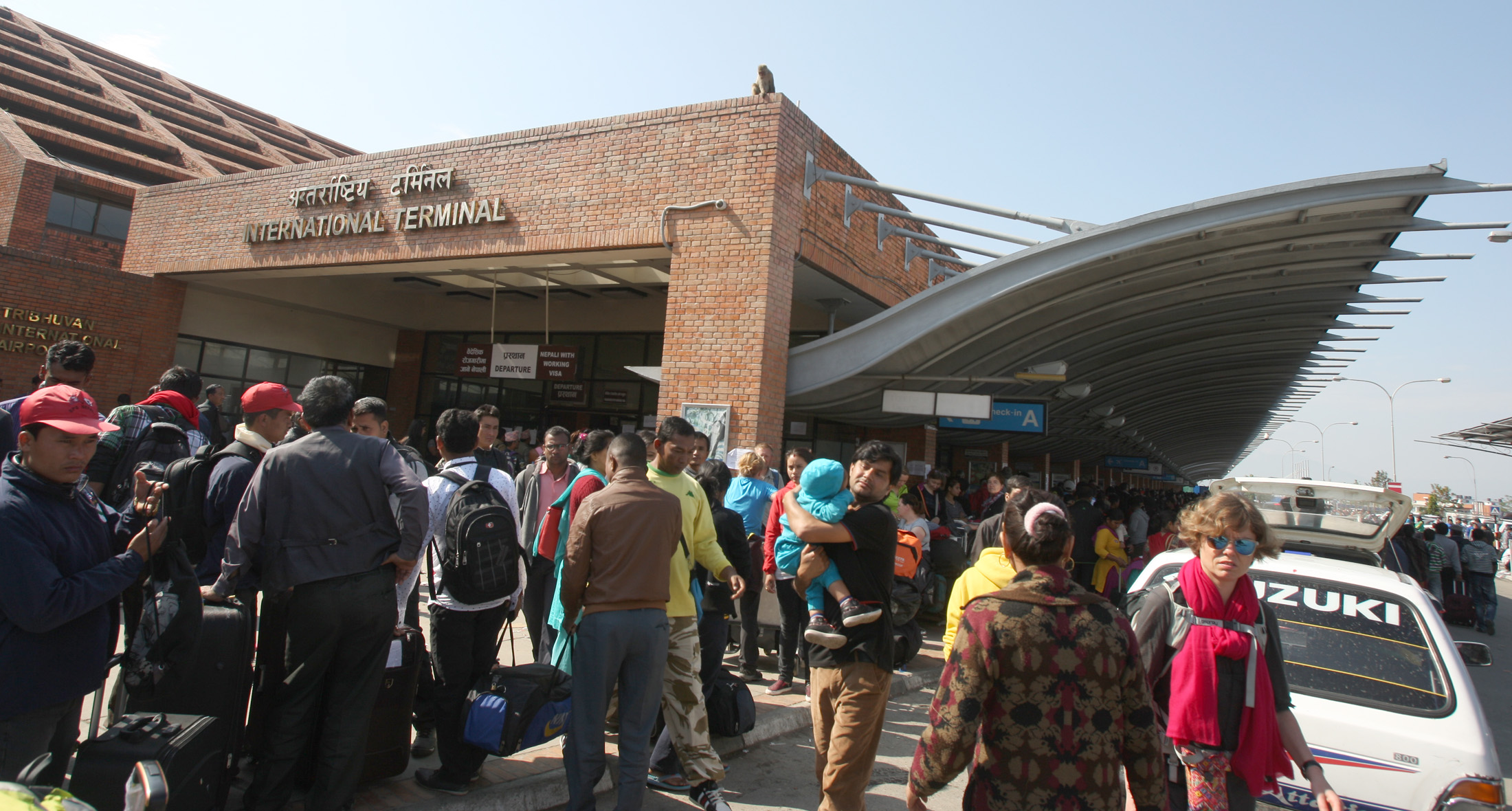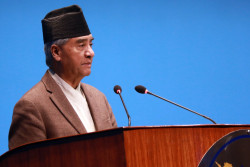Opinion

A section of Nepali Twitterati picked up their cues from international media coverage of the deaths of Nepali migrant workers in Qatar, going to the extent of calling for boycotting the FIFA World Cup 2022.
The Twitterati ostracised Nepali celebrities and journalists for posing with the Qatari Ambassador in Kathmandu ahead of the tournament’s kick-off in Qatar. Now that the World Cup is over, how they will further their concerns about the deaths of Nepali migrant workers remains to be seen.
The unfortunate deaths of young Nepali migrants are neither the sole doing of FIFA nor limited to Qatar. Nevertheless, the FIFA World Cup 2022 will continue to loom in the popular psyche as the most enduring symbol of the exploitation, neglect and deaths of Nepali migrant workers in general and in the Gulf states in particular.
Internationally speaking, the story of the exploitation of Nepali migrant workers in Qatar first appeared in the British daily The Guardian in 2013.
Only a cynic may argue that the story's authors and subsequent coverage in various other global journals did not have any sympathy towards Nepali migrant workers. However, the overarching goal of such tales was undoubtedly to cast a shadow over Qatar’s World Cup. They also based their narrative on the incorrect notion that such maladies are prevalent in space and time, where only Nepal and Qatar exist. The international community per se did not matter to them.
For an average Nepali, the disparity in the pay scale and pension of British Gurkhas is a far more vexing issue of exploitation of its manpower internationally. It is more profound in Nepal’s history. One often wonders if the western governments and private sector would find investing and doing business in the Gulf countries economically lucrative had not those societies been pushing down the cost of labour inter alia by keeping the salaries and other monetary compensations outrageously low.
Having served in Saudi Arabia in the immediate aftermath of the killing of 12 Nepali migrants in Iraq in 2004, and then led the Nepali official team to Kabul in 2016 to repatriate the mortal remains of 13 Nepali security personnel who were recruited to guard the Canadian Embassy there, I have since questioned myself as to whose interest the Nepali workers – often smuggled into the purportedly high-security zones inside Baghdad or Kabul – served in those war-torn countries? Certainly not that of Iraq or Afghanistan.
Our public discussions on foreign jobs have two unique features. First, they are frequently replete with stories of victimisation, sexual exploitation, and fatalities. Sharing anecdotes, even when they are terrible, does not contribute to a well-rounded public conversation and is not intellectually challenging.
Secondly, in the absence of credible and coherent discourses, false narratives presented by different actors often get sucked into those discussions. The convoluted arguments put out by the so-called manpower agents have, unfortunately, been informing our public policy, too. As discussed earlier in this write-up, international media coverage may differ from our typical false narrative. Nevertheless, they had ulterior motives and tenuous premises.
The concerns expressed by the Twitterati, however genuine they may be, fit into this pattern of public discussion.
Domestically, they overlooked the fact that unless we eliminate malpractices prevalent in the recruiting process in Nepal itself, the welfare of migrant workers overseas will remain a chimera. Internationally, they posited their arguments upon space and time where only Nepal and Qatar existed – just as the international media wanted us to do.
The responsibility to alleviate the conditions of Nepali youths lies squarely on us. Suppose we keep sending our youths to faraway lands where they, by and large, constitute the bottom echelons of the socio-economic stratum. In that case, those youths and the Nepali state remain the weakest links in the chain. Inhumane exploitation is bound to happen and continue.
National security is a self-referential practice. Foreign employment has already become security issues for Nepal, especially from economic, societal and environmental security perspectives. Any corrective measure may unprecedentedly upset the existing mutual accommodation among various foreign employment actors, including Nepal and the labour destination states. We must tread delicately. It also calls for a sound and knowledgeable public debate on the subject.






